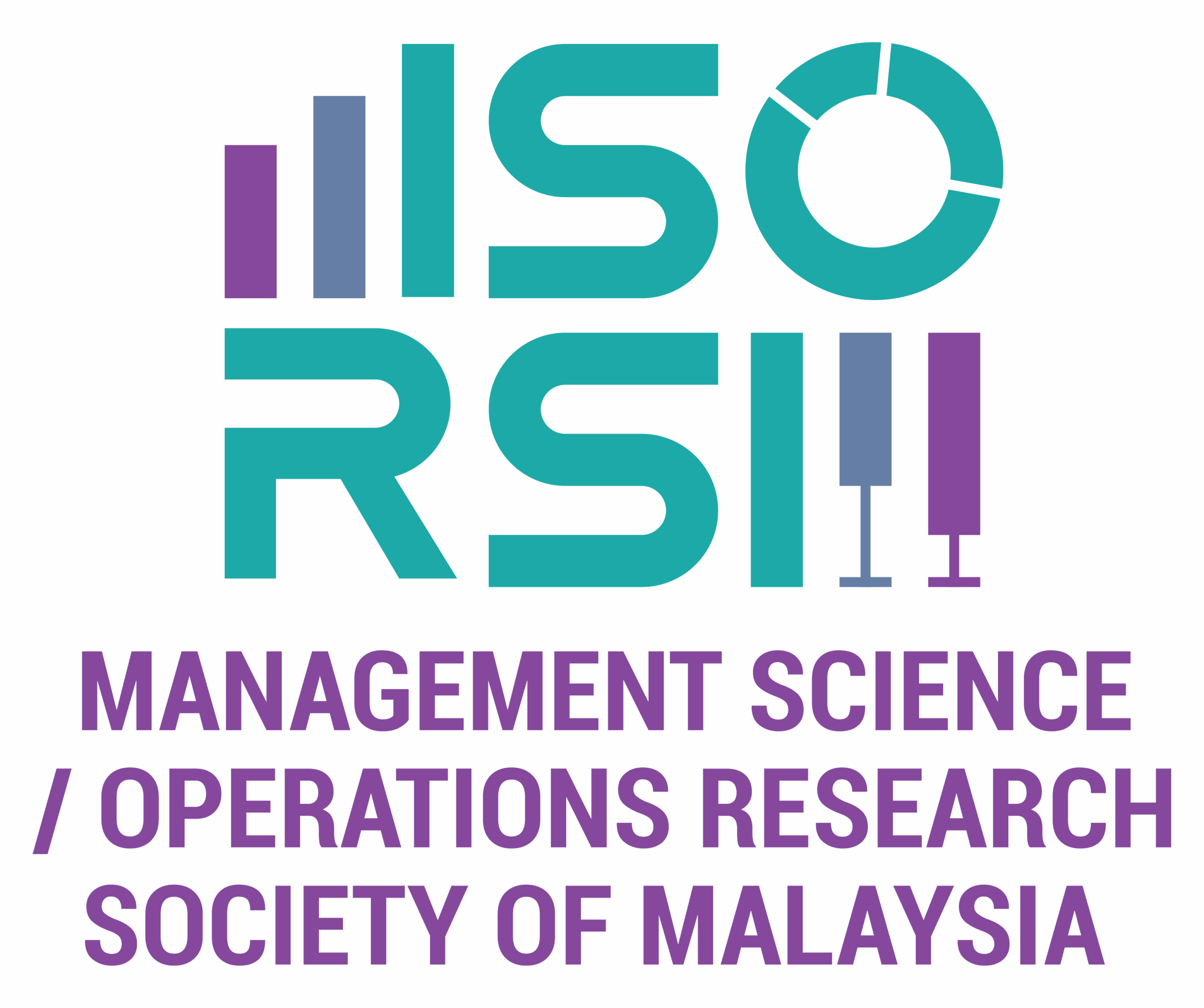MSORSM Seminar
September 10, 2024Anugerah Tesis Penyelidikan MSORSM 2025
April 24, 2025
Special Issue: Analytics and Data Science for Sustainability -IFORS Elsevier.
- AIMS AND SCOPE
This special issue calls for papers that explore the use of analytics and data science to address problems
related to sustainability and development. While the Special Issue is associated with the APORS Conference
2024, the call is open to all submissions to the journal related to the theme of the Special Issue.
In this increasingly inter-connected world, events in one region (e.g. natural disasters, political or military
conflicts, infectious diseases) have repercussions and impacts in the rest of the world. Hurricanes and
earthquakes disrupt the global supply chain for essential resources. Embargos and other trade frictions affect
international commerce. Meanwhile, emergence of infectious disease requires dramatic measures for
disease transmission control and risks reduction for everyone. Every country and region is affected by various
emerging crises and situations in different parts of the world. For each community, resilience and
sustainability of the supply of essential resources and system infrastructure is a critical concern. All countries,
be they in more or less advanced stage of economic and social development, face similar challenges to
ensure the well-being of the citizens. Problems of poverty, public health, education, economic development,
equity and environmental protection as described in the UN’s Sustainable Development Goals (see
https://www.un.org/en/common-agenda/sustainable-development-goals) are complex and difficult issues
facing communities all over the world.
Given the widespread impact and the scale and scope of these problems, transformative technologies and
policies are needed to tackle these sustainable development goals. In particular, more research into
understanding the root causes and investigations of innovative strategies to address these problems are
urgently needed. Analytics and data sciences are essential to make informed decisions and create pathways
and initiatives for sustainability.
The objective of this special issue is to promote the use of analytics and modelling in support of decisionmaking in tackling these global concerns. Papers on the use of analytics and data science and the
development of new methodologies for addressing problems related to the UN’s Sustainability Goals are
invited. Papers that showcase the application of innovative models and methods leading to policies that
yielded practical impact are especially encouraged.
- TOPICS COVERED
Sustainability Analytics and Modeling publishes articles that develop and apply quantitative methods of
analytics and operations research to take on global sustainability challenges. These challenges are many
and broad in scope. For this special issue, we invite submissions that explore the use of analytics and data
science to address problems related to Sustainability. Models and methods that enrich our understanding of
sustainability from different perspectives are welcome. Case studies that highlight the sustainability
challenges in different regions and contexts are also encouraged.
Topics that are of interest for this special issue include, but are not limited to:
- Models and methods for sustainable operations and supply chains;
- Reverse logistics, sustainable resource management and the circular economy;
- Data science and analytics for impact assessment of sustainability policies and strategies;
- Design of performance metrics for sustainability (e.g. ESG targets) and tradeoffs among different
objectives (e.g. equity, effectiveness, efficiency, flexibility);
- Economic development and their environmental and social impacts;
- Adaptation of concepts, tools and technologies for sustainable business operations;
- Case studies on sustainability problems (e.g. public health, environmental protection) in different
settings.
- SUBMISSION GUIDELINES
The APC (Article Publishing Charge) will be covered by IFORS for all papers submitted by 31st May 2025.
Submitted papers should be original works and should not have been previously published or currently
considered for publication elsewhere. The manuscripts should be prepared according to the Guide for
Authors available at:
https://www.elsevier.com/journals/sustainability-analytics-and-modeling/2667-2596/guide-for-authors.
All manuscripts should be submitted electronically using the journal’s online manuscript submission system
at: https://www.editorialmanager.com/samod/default.aspx when prompted for the article type, please select,
“VSI: Analytics and Data Science for Sustainability”.
On the Attach Files screen, please submit the Manuscript, Highlights, Cover Letter summarizing the
contributions of the paper, and Conflict of Interest Declaration (template available at
https://service.elsevier.com/app/answers/detail/a_id/286/supporthub/publishing).
At the Review Preferences screen, you may suggest potential reviewers for this submission and provide
specific reasons for your suggestion in the comments box for each person.
Manuscripts submitted after the deadline may not be considered for the special issue and may be transferred,
if accepted, to a regular issue.
- IMPORTANT DATES
Eligible submissions will be quickly submitted to the peer review process by the guest editors. The guest
editors will work to ensure a maximum time of three months for the initial peer review process. Papers that
need moderate revisions will be maintained for consideration for the special issue. Papers that need major
revision may be transferred to a regular issue.
Beginning of submissions: November 15, 2024
Deadline for submissions: May 31, 2025
Targeted closure of first peer review process: September 30, 2025
Publication: Winter 2025






